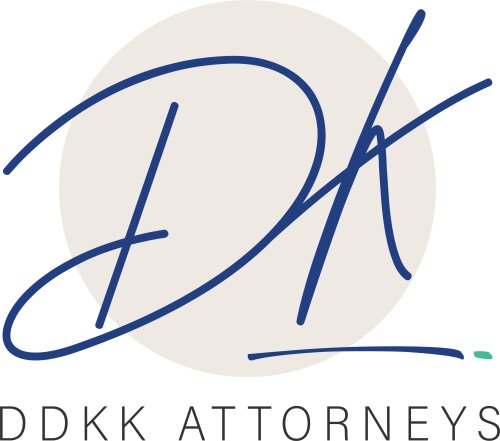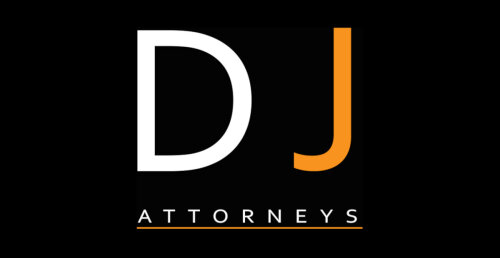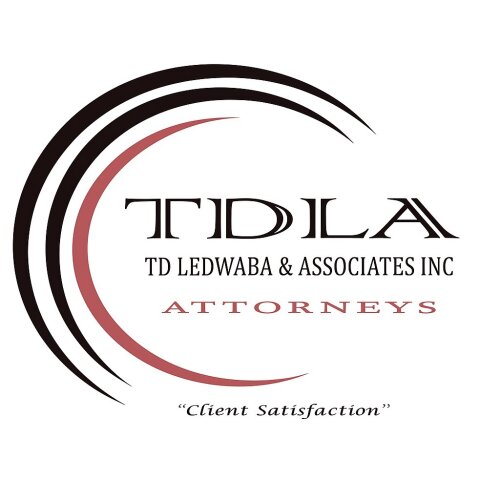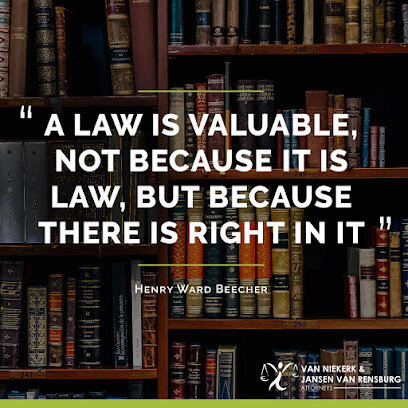Best Constitutional Law Lawyers in South Africa
Share your needs with us, get contacted by law firms.
Free. Takes 2 min.
Or refine your search by selecting a city:
List of the best lawyers in South Africa
About Constitutional Law in South Africa
Constitutional Law in South Africa is a critical field that lays the foundation for the legal framework in the country. It centers on the Constitution, which is the supreme law, primarily focusing on rights and duties of individuals, government structures, and the distribution of powers among state organs. The South African Constitution is celebrated for its strong emphasis on human rights, equality, and the rule of law. Enacted in 1996, it represents a progressive vision for governance and societal conduct, embodying principles such as democracy, social justice, and fundamental freedoms.
Why You May Need a Lawyer
There are numerous situations where legal assistance in Constitutional Law might be required. Commonly, individuals seek lawyers when their constitutional rights are violated or threatened, such as issues involving freedom of speech, privacy, or equality. Legal intervention is also crucial in cases of discrimination, challenges to legislative or executive actions, and breaches in procedural fairness or due process. Legal guidance is vital for those needing to interpret complex constitutional provisions accurately or for advocacy in constitutional litigation and reform processes.
Local Laws Overview
Key aspects of local laws that intertwine with Constitutional Law in South Africa include:
- Bill of Rights: It serves as the cornerstone of democracy in South Africa, ensuring all laws and policies promote dignity, equality, and freedom.
- Separation of Powers: This principle outlines the division of government responsibilities into distinct branches to forestall any abuse of power.
- Judicial Review: Courts have the authority to invalidate laws and government actions inconsistent with the Constitution.
- Customary Law: Recognized within the legal framework, ensuring cultural practices do not infringe upon constitutional rights.
- Chapter 9 Institutions: Bodies established to guard democracy, including the Public Protector and Human Rights Commission.
Frequently Asked Questions
What makes the Constitution the supreme law in South Africa?
The Constitution prevails over all other laws in the country. Any law or act that is inconsistent with it can be declared invalid by the courts.
Can individuals directly rely on the Bill of Rights in legal cases?
Yes, individuals can invoke the Bill of Rights in any legal proceedings, and the courts must apply it to both individuals and the state.
What is the role of the Constitutional Court of South Africa?
The Constitutional Court is the highest court in all matters related to the Constitution. It interprets, protects, and enforces constitutional provisions.
How does the Constitution address discrimination?
Section 9 of the Constitution, known as the Equality Clause, prohibits discrimination on grounds such as race, gender, sex, pregnancy, and more.
Are there limitations to the rights enshrined in the Constitution?
Yes, rights are not absolute and can be limited where such limitations are reasonable and justifiable in an open and democratic society.
What recourse does one have if constitutional rights are breached?
Individuals can approach courts for relief, including the possibility of constitutional damages or declarations of rights violations.
What is public interest litigation?
Public interest litigation involves legal actions initiated to protect or advance the interests of the public or disadvantaged groups.
Does the Constitution of South Africa apply to private parties?
Certain constitutional provisions apply horizontally, meaning they can affect relationships between private persons or entities.
How does the Constitution promote accountability in governance?
Through mechanisms such as transparency, public participation, and oversight institutions aimed at fostering responsible governance.
How can one challenge the constitutionality of a law or regulation?
Challenges can be made by approaching the court with a legal argument demonstrating how the law contravenes constitutional standards.
Additional Resources
For more in-depth understanding and resources, consider the following:
- The South African Human Rights Commission (SAHRC) provides support and resources on human rights issues.
- The Constitutional Court of South Africa offers accessible online resources and summaries of landmark judgments.
- Legal Aid South Africa provides assistance to those unable to afford private legal counsel.
- The Department of Justice and Constitutional Development offers publications and guidance on constitutional matters.
Next Steps
If you need legal assistance in Constitutional Law, consider the following steps:
- Identify Your Needs: Determine the specific issue you are facing and clarify your objectives in seeking legal advice.
- Consult a Lawyer: Seek consultation from a lawyer specializing in Constitutional Law to understand your rights and options.
- Gather Documentation: Compile any relevant documents, correspondence, or evidence that may aid your legal case.
- Explore Legal Aid: If cost is a concern, contact Legal Aid South Africa to check eligibility for pro bono services.
- Consider Mediation: Explore alternative dispute resolution methods like mediation to expedite outcomes amicably.
- Proceed with Legal Action: If necessary, work with your lawyer to file the appropriate legal actions in courts.
Understanding Constitutional Law is crucial as it underpins broad societal functioning in South Africa. By seeking proper legal help, individuals can better navigate the complexities of constitutional issues and pursue justice effectively.
Lawzana helps you find the best lawyers and law firms in South Africa through a curated and pre-screened list of qualified legal professionals. Our platform offers rankings and detailed profiles of attorneys and law firms, allowing you to compare based on practice areas, including Constitutional Law, experience, and client feedback.
Each profile includes a description of the firm's areas of practice, client reviews, team members and partners, year of establishment, spoken languages, office locations, contact information, social media presence, and any published articles or resources. Most firms on our platform speak English and are experienced in both local and international legal matters.
Get a quote from top-rated law firms in South Africa — quickly, securely, and without unnecessary hassle.
Disclaimer:
The information provided on this page is for general informational purposes only and does not constitute legal advice. While we strive to ensure the accuracy and relevance of the content, legal information may change over time, and interpretations of the law can vary. You should always consult with a qualified legal professional for advice specific to your situation.
We disclaim all liability for actions taken or not taken based on the content of this page. If you believe any information is incorrect or outdated, please contact us, and we will review and update it where appropriate.
Browse constitutional law law firms by city in South Africa
Refine your search by selecting a city.















